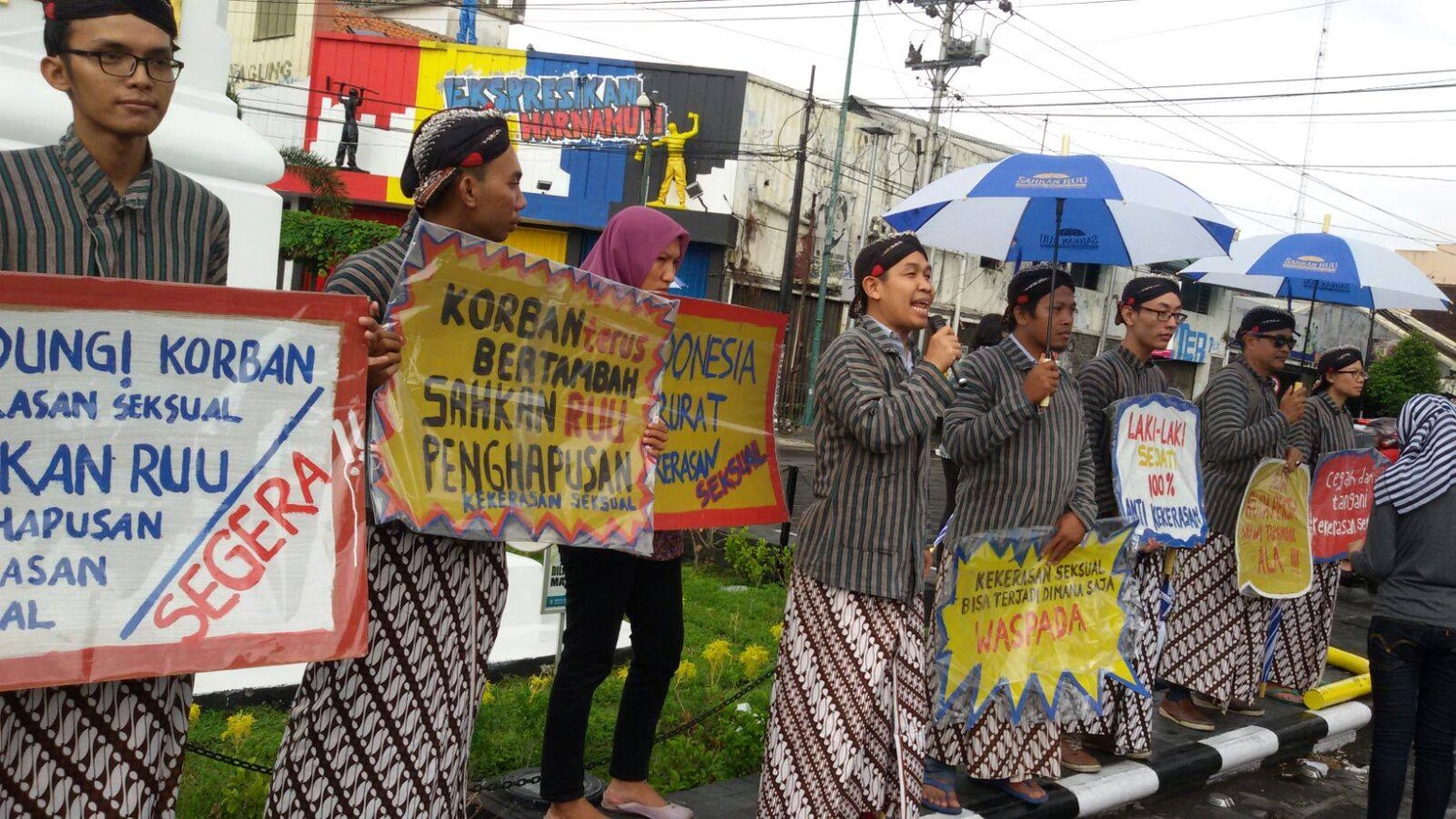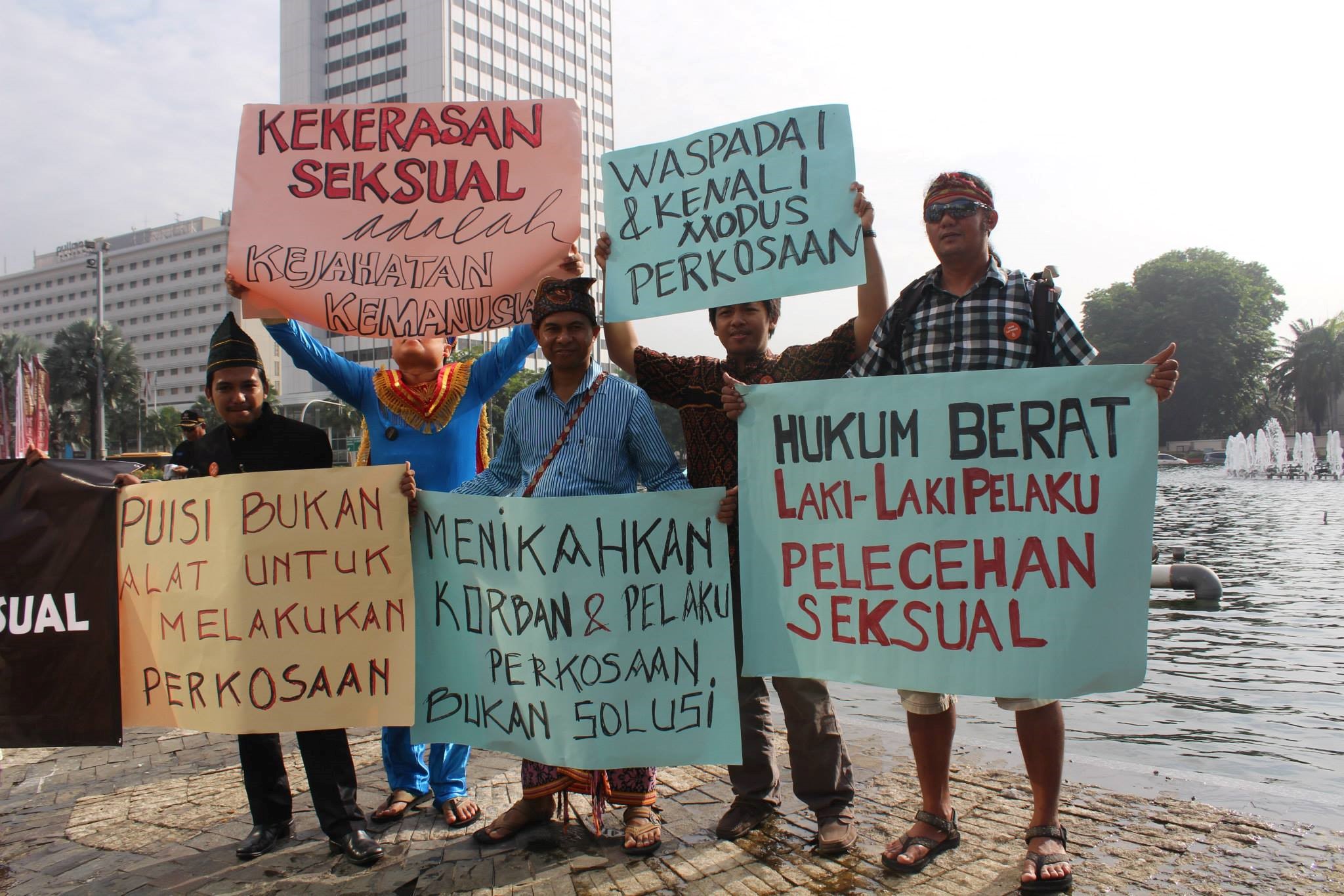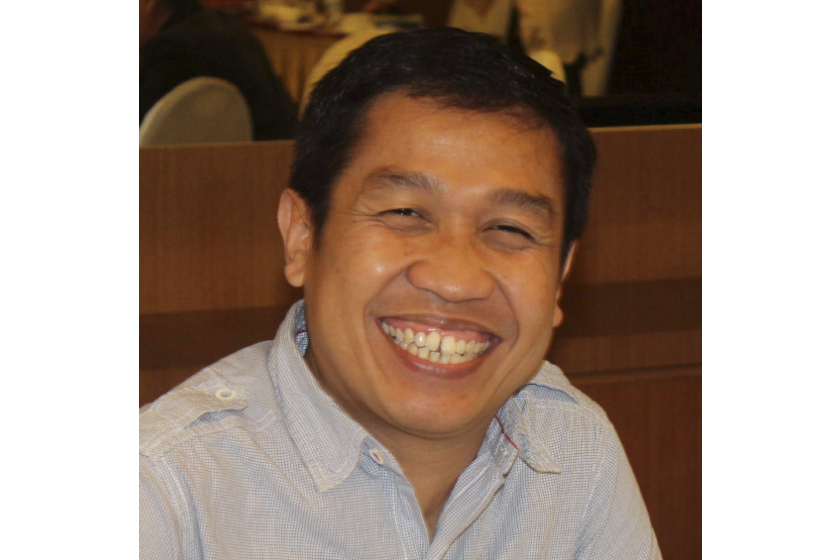Aliansi Laki-Laki Baru (www.lakilakibaru.or.id or New Men’s Alliance) is a movement spreading across several provinces in Indonesia. It aims to encourage men to become involved in the effort to stop violence against women by deconstructing the traditional ideas of masculinity and roles for men in the community.
The Indonesian National Commission on Violence Against Women (Komnas Perempuan) reported 406,178 cases of violence against women in 2018. These acts of gender-based violence encompass physical violence, sexual violence, psychological violence, economic abuse, human trafficking, and violence against migrant workers.
“We can’t eradicate gender-based violence against women if we only empower women and leave men to their traditional ideas of masculinity. Transforming men is an integral part of the effort to eliminate gender-based violence against women,” said Nur Hasyim, co-founder of the New Men's Alliance and the only male supervisory board member at Rifka Annisa, the first women’s crisis centre in Indonesia, which he joined as a volunteer in 1998.
According to Nur, what makes New Men's Alliance unique compared to other male pro feminist networks across the world is its decision to take a back seat to women’s organisations, providing only a supporting role for the cause.
The role male allies play in the fight against gender-based violence and gender equality has long been a source of debate amongst activists across the world. There are many concerns raised.
“Gender inequality is most often due to power imbalance,” said Nur, who obtained his Master of Arts from the University of Wollongong in 2015, under an Australia Awards Scholarship funded by the Australian Government.
“There are concerns that if men become involved in the effort to fight for the women’s cause, that men could unintentionally become the dominant force and weaken the positions of the women fighting for the cause.”
“There is also real concern that resources for the cause would go to the male allies, as traditionally men hold positions of privilege. Additionally, there is concern that men could take the spotlight from women who have fought for the cause for years.”
In response, the New Men's Alliance declared at its conception in 2009 that the movement was born out of women’s movement, and as such, the group aims to support, and not take the position of leadership.
Despite many people encouraging New Men's Alliance to become a formal non-government organisation, Nur said if the group was to run a project, it would collaborate with a women’s organisation, to avoid dividing precious resources.
In fact, the values and principles of New Men's Alliance are accountable towards several women’s groups: Rifka Annisa, Yayasan Jurnal Perempuan (Women’s Journal Foundation), Pulih Foundation, Cahaya Perempuan Women’s Crisis Centre Bengkulu, and Rumah Perempuan Women’s Crisis Centre Kupang.
To run a network of male allies without the structure of a formal organisation, New Men's Alliance has three national coordinators supported by provincial coordinators. From Yogyakarta, New Men's Alliance has now spread to across Indonesia, to Riau Islands, Lombok, Kupang, Bengkulu, and Jakarta.
Aside from online campaigns through its website and social media, New Men's Alliance has held offline campaigns. In one campaign, members wore skirts as a form of protest against those who blame violence on how female victims were dressed. They have also pushed strollers to raise awareness of the importance of a father’s role in raising a child.
New Men's Alliance also collaborated with Investing in Women, an initiative of the Australian Government which supports the Healing Foundation, to develop content for a campaign to normalise men taking on child-rearing and other domestic roles. Investing in Women catalyses inclusive economic growth through women’s economic empowerment in South East Asia.
In East Nusa Tenggara, New Men's Alliance are holding New Men classes for the community. Each two-hour discussion touches on a theme strongly related to the daily life of the community, such as how to be a father, men’s role within the family, and positive communication. These modules are then further developed by Rifka Annisa as classes for fathers, in conjunction with classes for mothers.
New Men's Alliance has also worked with the private sector to run Academy for Men, a national workshop on the importance of men’s roles at home.
Nur is now taking part in the development of a national framework on the involvement of men in achieving gender equality and sexual reproductive health and rights by the Ministry of Women Empowerment and Child Protection with the United Nations Population Fund.
A lecturer in Community Development, Community Organising, Social Movement and Sociology of Family at State Islamic University Walisongo Semarang, central Java, Nur is also working with fellow Australia Awards alumni to develop a class on Religion, Gender, and Masculinity at Universitas Gadjah Mada, with the second class starting in November 2019.
“I have learned a lot about women’s activism, and I believe that is due to the new mindset we as men obtained, working together with our fellow female activists.”


Photos courtesy of Aliansi Laki-Laki Baru


 New Men’s Alliance: transforming men to end gender-based violence against women
New Men’s Alliance: transforming men to end gender-based violence against women
